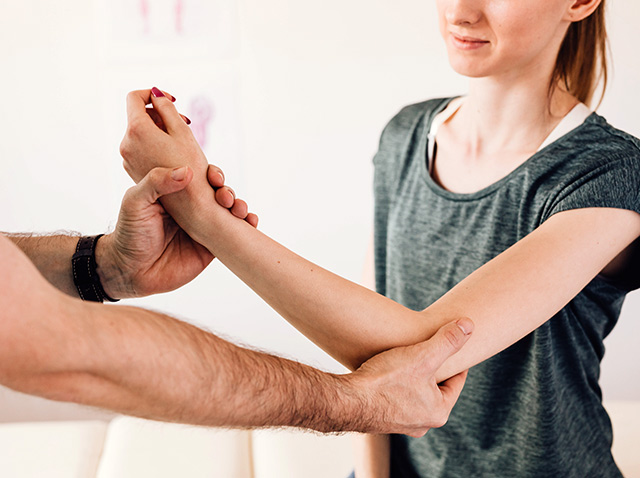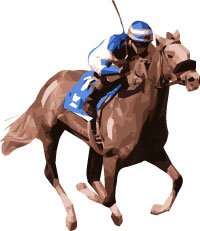Back when I was working at the Western Australian Institute of Sport (WAIS) I worked closely with several sports medicine physicians across all the different sport and athlete groups. In such a situation, it is important that the sports dietitians and sports physicians work well together with a common goal of supporting the athletes.
Just like the dietitians at WAIS were required to have the relevant national accreditation, the sports physicians must have relevant Australian qualifications and registration with their national governing body. They are also required to have demonstrated practical experience with high-performance sport, as working in sport is a very unique area that not all medical practitioners will have experience in.
When athletes are preparing for elite-level performance, the medical services provided need to be effective and efficient. A sports doctor has the following roles within an elite sports environment:
- Providing a safe training environment
- Diagnosing and responding to injury
- Dealing with infectious diseases that arise
- Delivering appropriate immunizations and vaccinations
- Undertaking athlete screening, including;
- General medical
- ECG screening
- Hepatitis A and B blood tests
- Ferritin level blood tests
- General medical
Through Australia's state institute system, we had regular sport science and medicine meetings that were attended by the doctor, physiotherapist, massage therapist, coaches, and time permitting, the sports dietitian. These meetings were to discuss all relevant medical issues of each individual athlete. If you have the resourcing to be present in this type of situation, it is a really useful way to keep up to date with injury and sickness in individual athletes, and give you an opportunity to provide further servicing.
The meetings are
also useful to bring a voice to the multidisciplinary approach to
athlete management, by making it clear where accredited sports dietitians can be
useful in helping to manage an athlete's injury or illness. I always
aimed to make it clear how I could help, and be sure to contribute
to the discussion, so the physician (and other practitioners)
understand where my expertise can fit in. Physicians can always
do with a friendly reminder of where we can align our services.
The medical staff also regularly sent through injury reports, which I read to ensure that I was able to catch any athletes that could benefit from dietary help. For example, if an athlete is frequently sick I would get in touch to offer nutrition advice and follow up. If an athlete injury means time off training, I will forward some information about nutritional considerations to deal with the reduced training load.
 doctor treatment
doctor treatment Blood results are circulated among staff, and if blood ferritin levels are low, or borderline, then dietary follow-up can occur. You should ensure that you have a good relationship with the physicians so they refer to the dietitian in these situations.
Each physician is very different in their approach to managing
individual athletes. Therefore it is important to understand each
one's personality and approach to decision making. I always made an
effort to contact each physician to discuss the issues that arise, so
there is a clear understanding of procedures and strategies.
One particular physician I worked with was very conservative when it comes to supplements, and often advised the athletes to 'not take anything'! However, I was able to let her know that the sports dietitians at WAIS have extensive knowledge and training in the use of sports supplements, and have encouraged all physicians to refer to the dietitians any athlete who brings up the topic of supplements.
Case study example: A gymnast has had multiple stress fractures. The physician has previously indicated that he will not do Vitamin D testing for all athletes at the medical screening. I requested to see the athlete to check nutritional status, looking especially at calcium intake, which was adequate for her age. As a gymnast compound load of the bone is high, however, due to the long indoor training hours they are at slightly higher risk of Vitamin D deficiency than other athletes. I contacted the doctor to discuss the case and requested a Vitamin D test to double-check if supplementation was necessary for this individual. At a team meeting, it was decided that two other gymnasts (as well as the initial individual) were possibly at risk, having had multiple stress fractures previously. Vitamin D blood checks were ordered for all three athletes and a group session with the parents was held to discuss bone mineral density, stress fractures, Calcium and Vitamin D. The results of the blood test showed a low level of 25(OH)D, so supplementation was recommended at least in the winter months.
Top Tips for working with a Sports Physician
- Introduce yourself to the physician that works with your athletes, and build a relationship with that person so they consider your input when the need arises.
- Doctors are very time poor, so doing some background work to assist in any discussion is very helpful.
- Communication and presence are so important, firstly as a friendly reminder as to how the role of the sports dietitian can align with athlete management for injury and illness, and also to continue a quality relationship.
This is an edited version of an article first published in the SDA Newsletter #146 Sept 2016
Related Pages
- How to become a sports physician
- About studying to be a sports medicine practitioner
- More Resources for Sports Dietitians


 Current Events
Current Events